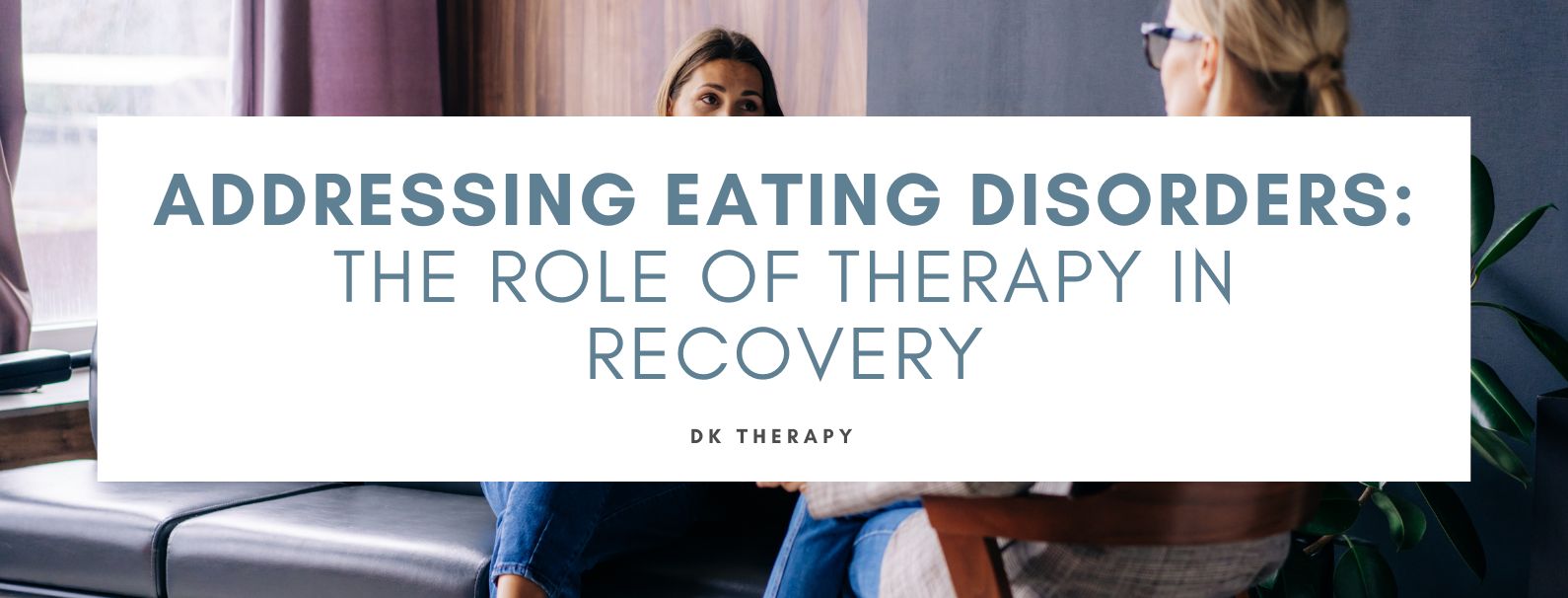
Eating disorders are complex mental health conditions that affect millions of people worldwide. They often stem from a combination of genetic, psychological, environmental, and societal factors. When it comes to anorexia nervosa, bulimia nervosa, binge eating, or another disordered eating pattern, therapy plays a key role in recovery. Professional intervention helps those affected understand their relationship with food, develop healthy coping mechanisms, and repair their self-image.
 Understanding the Psychological Roots of Eating Disorders
Understanding the Psychological Roots of Eating Disorders
Eating disorders are rarely just about food or weight. They are often deeply rooted in emotional distress, low self-esteem, trauma, anxiety, or depression. Many individuals use disordered eating behaviors as a way to gain control of their lives or cope with unresolved emotional pain.
While the results are detrimental, those affected often feel that their rigid food choices are one of the few things they are fully in charge of.
Therapy is important in identifying these underlying psychological triggers and addressing them in a supportive environment during eating disorder recovery.
Types of Therapy for Eating Disorder Recovery
Several therapeutic approaches have been proven effective in treating eating disorders. The right treatment varies depending on individual needs, but some of the most common and effective therapy options include:
Cognitive Behavioral Therapy (CBT)
CBT is one of the most widely used and researched treatments for eating disorders. It helps individuals recognize and change harmful thought patterns related to food, body image, and self-worth. By restructuring distorted beliefs, CBT enables individuals struggling with an eating disorder to develop healthier behaviors and attitudes toward food and their bodies.
Dialectical Behavior Therapy (DBT)
DBT focuses on one’s emotions and managing stress, which can be beneficial for those who struggle with impulsive behaviors like binge eating or purging. This therapy technique teaches mindfulness, coping strategies, and emotional regulation to help manage intense emotions without resorting to disordered eating.
Psychodynamic Therapy
Psychodynamic therapy takes a look at past experiences and unconscious patterns that may have contributed to the development of an eating disorder. By uncovering unresolved emotional conflicts, individuals can gain greater insight into their behaviors and work toward long-term healing.
Nutritional Counseling and Medical Support
Therapy addresses the psychological aspects of an eating disorder, but nutritional counseling is equally important. Dietitians and medical professionals help individuals maintain proper nutrition, establish healthy eating habits, and address any physical health complications caused by the disorder. A well-rounded approach that combines therapy with medical and nutritional support is often the most effective strategy for recovery.
The Importance of Early Intervention for Eating Disorder Recovery
The earlier an eating disorder is addressed, the better the chances of making a full recovery. Many individuals put off seeking help due to stigma, denial, or fear of judgment. However, untreated eating disorders can lead to severe physical and mental health complications, including heart issues, gastrointestinal disruption, osteoporosis, and suicidal thoughts. Therapy provides a safe space for individuals to share their experiences and struggles in order to develop strategies for healing.
Overcoming Stigma and Seeking Support
Societal misconceptions about eating disorders often prevent those affected from seeking the help they need. It’s important to address and reduce the stigma surrounding these conditions and emphasize that recovery is possible with the right support.
Eating disorders are highly complex but treatable conditions. With the right therapeutic approach, supportive community, resources, and medical care, eating disorder recovery is achievable. If you or someone you know is struggling with an eating disorder, reaching out for professional help can be the first step toward lasting healing.




